




Small Island Big Song
A Taiwanese Calling
Centered on TAIWAN Vol. 23 | 09 JUNE 2024 A PUBLICATION OF THE COMMUNITY SERVICES CENTER







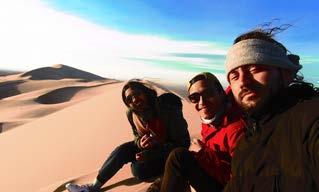

3 https://centered-on-taiwan.com/ JUNE 2024 COMMUNITY SERVICES CENTER DONORS PATRON BENEFACTORS SPORT Paddling into Taiwanese Culture 7 TRAVEL A Jaunt up Jade 10 100 Countries & Counting 13 COMMUNITY Discovering Taiwan as a LGBT Foreigner 16 MUSIC Small Island Big Song: A Taiwanese Calling 18 CULTURE & CUSTOMS Navigating Negotiation Nuances in Taiwan 21 BOOK REVIEW Bernadine’s Shanghai Saloon 24 ART Res Artis 25 Sunflower Movement 26 ART & CULTURE The Nuances of Xiǎo zhī (小知) 28 WELLNESS Travel Tips For A Pain Free Summer 30 CONTENTS June 2024 volume 23 issue 09 Centered on TAIWAN 13 10 07


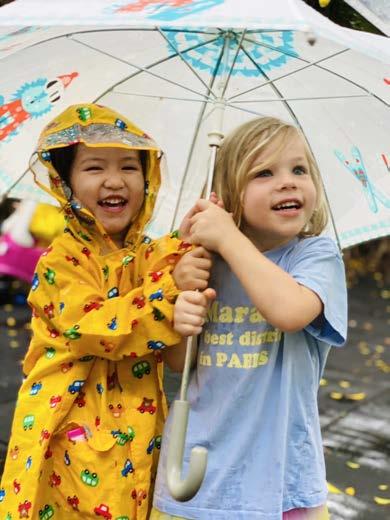

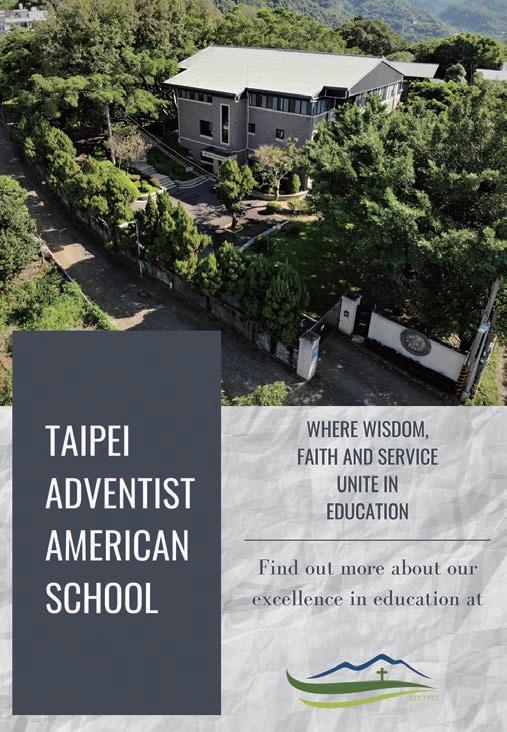
4 JUNE 2024 https://centered-on-taiwan.com/ Phonics & Decoding Gardening Outdoor P.E. Arts & Crafts Cooking Sensory Play S.T.E.M-Fun Low TeacherStudent Ratios Hands-On Learning Integrated Curriculum BEYOND CLASSROOM Swimming Pool Gardening Field Nutritious Meal Plans Outdoor Playground boosting Activities Creativity“ Indoor -outd o o r classr natural inv i t a t i ons for experie Tiger Tots Pre-School www.taas.tw

COVER
Small Island Big Song LIVE at 2023
TIFA National Concert Hall, Taiwan
Photo by Tony Tsai
For more information, please go to our website at https://centered-on-taiwan.com
COT Team Art, Photography and Writing Contributors




Roma Mehta
Editor coteditor @communitycenter.org.tw
Naomi Kaly Advertising Manager naomi @communitycenter.org.tw
Katia Chen
Graphic Designer katia @communitycenter.org.tw
Angela (Yi-an) Chen
Marketing Manager angela @communitycenter.org.tw
Angela Chen
Katy Ho Boyden
Herb Chow (周文斌)
Gemma Green
Julie Hu
Madison Jones
Stefano LIra
Jessica Lott
Roma Mehta
Tobie Openshaw
Small Island Big Song
Tony Quander
Jessica Wang Simula
Lucy Torres
FROM THE EDITOR
Please send email submissions, comments, and feedback to coteditor@communitycenter.org.tw
“There is hope in people, not in society, not in systems, but in you and me.”
—Jiddu Krishnamurti
COT is now a digital publishing platform that allows you to share content in multiple ways. Discover and share our Taiwan stories in a more accessible way, anytime, anywhere.
Correspondence may be sent to the editor at coteditor@ communitycenter.org.tw Freelance writers, photographers and illustrators are welcome to contact the editor to discuss editorial and graphic assignments. Your talent will find a home with us!
Publisher Adam McMillan
Centered on Taiwan is a publication of the Community Services Center, 2F, No. 238, Zhongshan N. Rd., Sec. 6, Shilin, Taipei, Taiwan 111032
Tel: 02-2836-8134 Fax: 02-2835-2530
Copyright 2024. All rights reserved. Material in this publication may not be reproduced without the written consent of the copyright owner.
COT publishes 10 editions in full magazine format online with only 4 printed editions (Summer, Autumn, Winter, Spring) each year.
COMMUNITY SERVICES CENTER
The Community Services Center (CSC) is a non-profit foundation. CSC provides outreach and early intervention through counseling, cross-cultural education and life skills programs to meet the needs of the international community in Taipei. CSC offers the opportunity to learn, volunteer, teach and meet others. Check out our website www.communitycenter.org.tw and drop by The Center to chat with us about our programs. You can also email us at csc@communitycenter.org.tw.
Director Office Manager Counselors
Consultant
Intern Counselor
In-take Counselor.
Adam McMillan
Mandy Wang McCarthy
I-wen Chan, Katherine Chang, Hui-shiang Chao, Chiao-Feng Chung, Cerita Hsu, Lily Lin, Miranda Lin, Emilie Ma, Kuan-Shan Wan, Zoe Wu, Yu-Chi Lin, Zack Liu
Tom Cole
Liliana Altamirano
Ximena Lopez
Dear Readers,
Our June edition is packed with a diverse lineup of stories, where culture, customs, sports, and music intertwine – all woven together by a strong sense of community. Humans thrive in communities, and strong communities provide a sense of belonging, support, and shared purpose. They empower individuals and create a platform for positive change.
Delve into “The Nuances Of Xiǎo zhī ( 小知 )” and discover how transcending self-centeredness strengthens the community spirit.
A personal perspective in “Discover Taiwan as a LGBT foreigner” reveals the welcoming community that thrives here. “Navigating Negotiation Nuances in Taiwan” can help you understand your style of negotiation by taking an assessment for a free report.
On the music scene, “Small Island Big Song – A Taiwanese Calling” explores a group using music to raise awareness for the ocean and Pacific Island communities.
Feel the pulse of Taiwan in “Paddling into Taiwanese Culture” as foreigners join the Dragon Boat Festival competition, a cultural cornerstone celebrated in June.
Don't miss Lutetia ART-at-TAC’s photography exhibition marking the 10th anniversary of the “Sunflower Movement”, a pivotal point in Taiwan's political history.
This month's Book Review takes you on a journey with “Bernadine’s Shanghai Saloon: The story of the Doyenne of Old China.”
“Travel Tips for a Pain Free Summer” equips you with knowledge to minimise travel woes.
As a non-profit organisation, the Center offers COT free for all, supported by those who can. Get in touch if you would like to advertise with us or become a sponsor for future editions.
Subscribe to the COT Magazine, or just get in touch. Never miss an issue.
We wish you a happy and relaxing summer.
Roma

Counseling Admin. Assistant Accountant
Activities Manager
Events Coordinator
Communications
Mandarin Chinese Teacher
IT Advancement Manager
Systems Manager
Volunteers

Matina Chen
Monica Cheng
Zoey Hoang
Sammy Driessen
Angela (Yi-an) Chen
Gloria Gwo
John Quinlan
Samson Assamnew
Miyuki Boice, Kismeth Caminero, Szu-Han Wang, Sophie Lin, Jacob Luta, Bunny Pacheco, Misa Shibata, Petra Yu
IMAGE
5 https://centered-on-taiwan.com/ JUNE 2024





s i s i s i chinese
The Community Services Center presents: Beginner Level

Classes meet every Monday and Wednesday. June July 3, 5, 11, 12, 17, 19, 24, 26 1, 3, 8, 10, 15





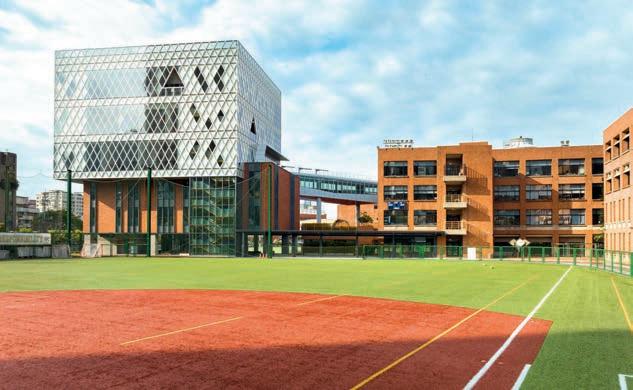

BIG CAMPUS BIGGER IDEAS

Taipei American School’s campus and facilities redefine excellence. With over 15 acres of learning space and purpose-built facilities for the Arts, STEAM, and Athletics, every inch of our campus supports student learning. TAS is the ideal place for students to reach the next level of academic and personal development.
chinese chinese
Room to Learn,
Grow! BOOK A VISIT TODAY!
Play, &
800 Zhongshan
Taipei, 11152, Taiwan, ROC
N. Road, Sec. 6
(886.2.7750.9900 www.tas.edu.tw
Paddling into Taiwanese Culture

Hi, I'm Tony, the guy on the left in the "Black Tide" shirt – a smile plastered across my face, barely concealing the nerves and excitement bubbling beneath. I'm an American English teacher in Taiwan, about to experience my first Dragon Boat Festival as a competitor! For 8 years, I've lived and taught here, sharing the festival's magic with my students through stories, sticky rice dumplings (zongzi), and even the occasional YouTube clip. But this year, the festival is taking on a whole new meaning. I'll be trading my spectator seat for a paddle, joining the heartpounding action of Taipei's dragon boat races. I'm training hard for the big race, and let me tell you, it's a whole new world of early mornings, sore muscles, and a whole lot of camaraderie. Ever heard of a festival that honors a poet with boat races and delicious dumplings? Well, buckle up, because I'm about to take you on a wild ride through my Dragon Boat Festival experience – from push-ups to paddling in the heart of Taipei.
DRAGON BOAT RACING:
A SPECTACLE OF STRENGTH AND SPIRIT
I have learned thus far that Dragon boat racing isn't just a sport; it's a symphony of strength and spirit, deeply woven into the fabric of Chinese tradition. The electrifying races are the centerpiece of the Dragon Boat Festival (Duanwu Jie), a time to honor the poet and patriot Qu Yuan, whose legacy resonates through every synchronized stroke. These races are a symbolic tribute to Qu Yuan's story. Legend has it that when he drowned himself, the locals raced out in their boats to try and save him, or at least recover his body. They even threw rice dumplings (zongzi) into the water to distract the fish from eating his body. So, those intense races you see today? They're a way to honor his memory, a reminder of the frantic search that took place centuries ago. In Taiwan, these races ignite a collective passion, uniting communities and showcasing the remarkable power of teamwork.
JUNE 9-10
Location: Breeze Park (MRT Luzhou)

微風運河 (近捷運蘆洲站 )
TRADITIONAL RITUALS: BLESSINGS AND RHYTHMS
The culture of the Dragon Boat is unfamiliar to me in my American roots, but very vibrant and exciting! The air crackles with anticipation as the dragon boats, adorned with vibrant colors and fierce dragon heads, are prepared for battle. Priests offer blessings, their chants mingling with the heady scent of incense, as they pray for the paddlers' safety and success. The rhythmic pounding of drums reverberates through the air, setting the tempo for the race and stirring the paddlers' souls. It's a mesmerizing ritual that connects us to centuries of tradition and fills me with a sense of awe and purpose.
Another essential element of the festival is the consumption of zongzi (粽 子). These pyramid-shaped dumplings are made of glutinous rice wrapped in bamboo leaves and filled with various ingredients such as; meat, beans, and egg yolks. Zongzi symbolizes the offerings made to Qu Yuan's spirit in the river. The Dragon Boat Festival is steeped in cultural traditions. People often hang fragrant herbs, like mugwort and calamus, on their doors to ward off evil spirits. They also wear colorful silk threads to promote good health and fortune. In some regions, realgar wine, a traditional Chinese alcoholic beverage believed to have medicinal properties, is consumed during the festival.
THE RACES: A TEST OF SKILL AND TEAMWORK
Dragon boat races are a breathtaking ballet of power and precision. Teams of 22 paddlers, a drummer who dictates the pace, and a steersperson who guides the boat, work in perfect harmony. The sleek, dragon-headed boats slice through the water, each stroke a testament to countless hours of training.
Taiwan's dragon boat calendar is packed with competitions,
7 https://centered-on-taiwan.com/ JUNE 2024 SPORTS
TEXT & IMAGES: TONY QUANDER

culminating in the grand spectacle of the Taipei International Dragon Boat Championships. Teams from around the globe, including universities, clubs, and corporations, gather to test their mettle against the best. Qualifying is no easy feat, requiring a proven track record of skill and dedication.
TRAINING: FROM TRACK PRACTICE TO DRAGON BOAT
Our team is Black Tide 黑潮 (Hēi Cháo), a motley crew of teachers, students, expats, and locals, that has
been training relentlessly since April, three to four times a week. We sweat and bond on the NTU track, then take to the waters of Bitan and Luzhou, where the real magic happens. But let me tell you, those HIIT workouts (HighIntensity Interval Training) in our track practice aren't for the faint of heart. At first, I could barely walk the next day, but after a few weeks, something clicked. My body adapted, and the soreness became less intense. It's like my muscles were saying, "Alright, Tony, we're getting the hang of this!"
You might think paddling practice would involve, well, water, but it gets weirder than that. Some days, we find ourselves practicing our strokes in a paddling tank – a long, narrow pool where the sound of our paddles splashing echoes off the walls. It's a bit surreal, feeling the resistance of the water in such a confined space, as you try to perfect your form. Early on in the boats, we struggled to synchronize our movements, our paddles flailing like fish out of water. But with each practice, we've grown stronger, our strokes aligning into a powerful rhythm. Now, with the June 10th race (my birthday!) fast approaching, we're fine-tuning our technique, fueled by adrenaline and a shared dream.
THE CHALLENGE: BALANCING LIFE AND DRAGON BOATS
The early mornings (5-6 AM!) and late nights (7:30 PM) have pushed me to my limits. Balancing dragon boat training with my teaching schedule, private lessons, and even the occasional music gig has been a juggling act. There are days when exhaustion threatens to overwhelm me, but the camaraderie of my teammates and the thrill of the upcoming race keep me going. With practices twice a week, on Saturday and Sunday mornings, it's definitely put a damper on my weekend warrior lifestyle. No more late nights out –gotta be in tip-top shape for those early morning paddles. But our team keeps us motivated through our Line group, sending out videos of stretches and exercises to prevent injuries. They're even sharing meal plans to help us fuel up properly. Honestly, it's made a difference – I feel stronger and healthier than ever.
PADDLING TOWARDS FRIENDSHIP AND CONNECTION
Dragon boat racing is one of the most humbling sports I've ever encountered. It's not about individual glory – it's not about being the fastest or the strongest individual – it's about the team, and how well you synchronize with your teammates. Our coaches constantly remind us that the boat's performance is a direct reflection of our ability to work together seamlessly; we're only as strong as our weakest
8 JUNE 2024 https://centered-on-taiwan.com/ SPORTS
link. We're encouraged to work in sync, to support each other, and to prioritize our health and fitness, so that we can all contribute to the boat's success. It's a beautiful thing, to realize that your individual efforts are part of something much bigger.
While victory is a goal, it's not the sole focus of our team. Our paddlers come from diverse backgrounds –Taiwan, America, Mongolia, Germany, Russia, and beyond. Dragon boat racing has united us, forging bonds of friendship and cross-cultural understanding. It's a testament to the power of sport to bridge divides and create shared experiences.
As I prepare for my first race, I'm filled with gratitude for the opportunity to immerse myself in Taiwanese culture, connect with my community here, and challenge myself physically and mentally. Regardless of the outcome, I know this will be an unforgettable journey.
JOIN THE CELEBRATION!
So, feeling inspired to hop on a
dragon boat yourself? Whether you're in Taiwan, or just curious from afar, there are ways to get in on the action. Here in Taiwan, you can find dragon boat teams and clubs pretty easily online. Most cities have them, and they're always welcoming new paddlers. Just be prepared for early mornings and a whole lot of fun! If you can't make it to a race in person, don't worry –many of the bigger competitions, like the one in Luzhou on June 10th (my birthday!), are streamed online. You can usually find them on YouTube or local TV channels. Check out the official websites of the race organizers for more details. It's a great way to soak in the excitement and cheer on the teams from wherever you are.

I'm Tony Quander. By day, I bring the world of language to life for students of all ages in Taiwan. By night, I trade in textbooks for rap, using music to spread messages of love and appreciation for the people and places that inspire me, like the beautiful island of Taiwan, now my adopted home.













9 https://centered-on-taiwan.com/ JUNE 2024 SPORTS
Kid Scuba Diving @NOMADIVING NOMADDIVINGTAIWAN NOMADDIVING TAIWAN COOL OFF DURING THE SUMMER WITH RED POINT BREWING & BAI WIN’s WAREHOUSE SALE!! Furniture, paintings, textiles accessories, ceramics and more. JUNE 15 2024 THROUGH JULY BAIWIN PRESENTS AN EXHIBITION OF TEXTILES THROUGH THE AGES From Qing dynasty to contemporary. OPENS MAY 25 2024, 5 PM THROUGH JUNE SUMMER CELEBRATION!
A Jaunt up JADE

When I first arrived in Taiwan, several people told me that there are three experiences I must do while I’m here. These are to climb Jade Mountain, cycle around Taiwan and swim Sun Moon Lake. My husband and two sons swam the lake and my eldest son cycled around the island, so it was up to me to climb the mountain. I’m proud to say that I’ve now managed to do that, almost six years later!
ORGANIZATION
As I’m sure you know, Jade Mountain is the highest peak in Taiwan standing tall at 3952 meters. This means that a lot of people want to complete the challenge. As a result, the first hurdle is to win the permit-lottery so that you are allowed to hike up the mountain. The hike from the trailhead to the peak is not that long, around 10km, which means a 20km round trip. There are some people who do this in a day which, as the less popular option, means you’re more likely to get the permit. However, considering the altitude, I thought it best to do it the Taiwanese way. That means you take it slowly, stay in the cabin and climb the peak for sunrise. I got my Jade Gang together and asked Dory Chung to lead our expedition. She makes things very easy as she applies for the permit, organizes the transport and leads the way … leaving you to enjoy the experience.

GETTING THERE
Dory, Gaby, Jodie, Lene, Lewis, Sophie and I set off one Sunday afternoon from Taipei. We drove down to Nantou and then took Route 21 to a small aboriginal village, where we stayed the night. We stocked up on energy with a traditional dinner that had numerous dishes including chicken, pork, fish, sweet potato leaves, water spinach, okra and sweet potato fritters.
10 JUNE 2024 https://centered-on-taiwan.com/
TRAVEL
TEXT & IMAGES: LUCY TORRES
AND WE’RE OFF!
On Monday morning we set off around 7am to Jade Mountain, reached the park office, checked in with our passports and then took the shuttle bus to the trailhead. At 9am, rucksacks on our back, off we set. It was 8.5km to the cabin and we took it slowly, unused to the weight of the rucksack, but also because the weather was glorious and the views spectacular. We could see the surrounding mountain ranges and peek down into the valley below. The path is mainly trail, with a few steps in places. At first, we had the trail to ourselves, but then people started to pass us on their way down. They had scaled the peak that dawn and were now heading home. Most impressive of all is the porters, though. They go both ways and carry these huge rucksacks full of supplies or one or two gas canisters and they are pretty speedy. I loved that feeling of being out in the middle of nowhere, surrounded by nature. Huge trees clinging to the mountainside, beautiful rhododendrons blooming and birds chattering all around.
THE CABIN
We reached Pai Yun cabin around 3pm, shed the rucksacks and enjoyed the view. It was already quite cool, around 12 degrees, which after Taipei’s 30+ was refreshing. We were assigned to cabin 6 which we shared with another group of hikers. The cabins are made up of wooden bunks, with thin foam mattresses and thick sleeping bags provided. The dining area is downstairs, and the toilets are outside. It’s all well-organised and works like clockwork. At around 6pm we had

dinner and then it was time for bed. Yes, it’s early! But the lights go out and the temperature drops so cosying up in your sleeping bag is the best option. By 2am everyone was awake and readying themselves for the adventurous part of the trip. Breakfast was provided – rice porridge with all sorts of flavorings – but it was way


too early for me to eat. We set off around 3am, headtorches lighting the way up the path. It’s the first time I’ve hiked in the dark and it was easier than I imagined. The headtorches provide plenty of light to show the way. After about half an hour we left the trees behind and climbed the scraggy mountainside with other hikers’ lights bobbing up and down in the distance. This section of trail is pretty steep and narrow and it was a relief to have the metal chain to hold on to at times. The last 500 meters
11 https://centered-on-taiwan.com/ JUNE 2024 TRAVEL
is particularly challenging as the cold wind emerges and the path gets even steeper. However, at this point, dawn is breaking, and you can see mountain silhouettes all around which is quite breathtaking.
We reached the peak and found a quiet spot from which to enjoy the sunrise. We had a great show, with the orange orb rising in a perfect circle to brighten the sky and tint the clouds. There was also a beautiful sea of clouds to admire, along with all the mountain ridges that gradually emerged from the dark.
We lasted about an hour on the summit, took our Instagram-worthy photos on the peak and then headed down to defrost the fingers. Although you go down the same way, it looks totally different in daylight, and you realize exactly where you are and what you’ve climbed. Back at the cabin we revived ourselves with a delicious bowl of noodles and then set off back down to the trailhead. We got back to the van around 1pm and headed back to Taipei feeling tired but content, with our mission accomplished.


If you fancy a jaunt to Jade, then go for it. I recommend you get a group together, because it’s not just a hike, it’s an experience! There’s the long journey to the trailhead and you share a cabin for two nights – so it’s more fun with friends. I would also suggest that you hire a guide to arrange all the details, and if she’s free, I’d choose Dory. Check out her Facebook page: ExplorewithDory. Happy hiking!
MORNING BOOK CLUB


JUNE 11

Lucy Torres is a volunteer at The Center but is more often found on a hiking trail. She loves exploring different routes to find beautiful views and relax in the great outdoors.
10:30-12:00, second Tuesday of the month. Contact Julie Hu at: mcelroy22000@yahoo.com
Book Woman of Troublesome Creek by Kim Michelle Richardson 2019. 309 pp
JULY 09
Left on Tenth: a Second Chance at Life by Delia Ephron 2022. 304pp
12 JUNE 2024 https://centered-on-taiwan.com/ TRAVEL
100 Countries & Counting:
One
Man's Epic Adventure of Culture and Connection
Stefano Lira, an Italian adventurer, recently reached a milestone: his 100th visited country, Taiwan! Driven by a childhood love of travel, Stefano has embarked on incredible journeys across the globe. This article explores his unique experiences and the philosophy behind his nomadic lifestyle.


Early Travels and NGO Work


My passion for travel began with a trip with my father Renzo to the United States at 19. Inspired by my parents, who ventured to off-the-beaten-path destinations like Uzbekistan and Yemen, travel became a core part of my life. In 2008, I left for a threemonth adventure through Central and South America, and was captivated by Colombia's vibrant culture.
After graduating in International Relations from my university in Trento, I joined an Italian NGO in Colombia. The organization focused on social care, micro-businesses for underserved communities, and educational workshops to prevent sexual abuse. Working in remote, high-altitude regions of Peru with Quechua and Aymara communities influenced my desire to live and work outside the traditional system.
After a year in Peru (around 2011), I returned to Italy. During this time, I also travelled to Bolivia, Argentina, Chile, Uruguay and Brazil.

13 https://centered-on-taiwan.com/ JUNE 2024 TRAVEL
December 2016, Sigiriya, Sri Lanka
Oct 2016, Ulaanbaatar Mongolia
November 2018 Tilicho Lake Trek Nepal.
May 2011, Cuzco Peru
Omo valley, Ethiopia



A Life-Changing Decision
I came back to Europe for a marketing and sales role in the Netherlands. It provided a good salary, but it also helped me clarify my passions and interests. Limited vacation time pushed me to make a career shift. I embraced budget travel, utilising platforms like Couchsurfing to connect with locals and used

platforms like Workaway and HelpX to volunteer my skills in exchange for accommodation and cultural experiences. A particularly memorable experience was being welcomed into a Bangladeshi home, sharing perspectives on daily life. These interactions were enriching and broadened my horizons. These platforms also helped me avoid tourist traps and explore the ‘road less travelled’.
Authentic ideas, meeting real people, real things.
Even during COVID, I explored 17 countries, venturing into the depths of the Amazon jungle. My most significant journey was a two-
and-a-half-year exploration of the Silk Road. Travelling through Central Asia on the Trans-Siberian and TransMongolian railways, I loved the beauty of Mongolia's nomadic culture and the historical significance of cities like Khiva, Samarkand, and Bukhara. While Central Asia and the Middle East are my favourite regions, Japan's unique culture and food also hold a special place in my heart.
The Silk Road continues to hold a special place in my heart. Iran, Uzbekistan, and the ancient cities of Khiva, Samarkand, and Bukhara still retain a sense of authenticity. One summer, I hitchhiked to Kyrgyzstan's Son Kul Lake, located over 4,000 metres. The nomads move their gers
14 JUNE 2024 https://centered-on-taiwan.com/ TRAVEL
December 2015, Ethiopia Thorangala pass Manang Nepal
Oct 2016, Ulaanbaatar Mongolia
May 2024, Kenting Taiwan

(traditional dwellings) across the landscape, surrounded by wild horses. Witnessing this simple way of life, where families share what little they have, is truly enriching.
Life starts when the comfort zone ends
Travel is more than just ticking destinations off a list; it's about the journey itself, the authentic experiences, the human connections, and constant learning. Geography has always been my passion. I could recite populations, rivers, mountains, languages, biggest cities, highest mountains, and longest rivers for all countries. I can still recall my itinerary from 15 years ago. I have a collection of audio and video materials, though I haven't written down many stories. I dream of writing a book someday.
I am fascinated by how people live, behave, and think. Experiencing different cultures allows us to see the world through new lenses. What's considered "normal" is very subjective. With 8 billion people on Earth, there are 8 billion unique "normalities." I'm naturally curious about different territories, art (a big part for me!), architecture, street art, and bazaars. Food is another crucial element – it's a pillar to understanding a country's culture.
With a return to Italy on the horizon, Stefano is currently exploring East Asia. His story is an inspiration to chase passions, embrace the world's wonders, and forge meaningful connections across cultures.You can follow Stefano’s travels on: IG: https://www.instagram.com/stefano.lira
FB: https://www.facebook.com/macchinaautomaticanoanima
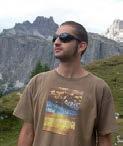

November 2016,
Tips for travellers
● Language is more of a motivation than a barrier.
○ Language barriers can be a challenge, but there are always ways to communicate! For example, in a remote area of western China, ordering food was a challenge. Menus lacked pictures so I simply pointed at dishes in busy restaurants and turned a potential language barrier into a fun adventure.
● Live for free. Make a bit of money. Until you get to your next couch.
○ Platforms like Workaway and Couchsurfing offer a great way to immerse yourself in new cultures while contributing to local communities through volunteer work. I once volunteered on an Amazon project where I worked alongside migrants. We managed to communicate through smiles and body language, highlighting the power of human connection. Workaway ( https:// www.workaway.info/en/info/ how-it-works/host). Couchsurfing (https://www.couchsurfing.com/)
● Embrace the Unknown
○ Navigating travel in the past meant arriving at a destination and taking your chances. Technology has changed this. During 2021 and part of 2022, I embraced a nomadic lifestyle and must have slept in 100 beds.
● The future is now. Embrace the Journey
○ The idea of getting lost doesn't faze me. True exploration thrives on a spirit of adventure. I have a general idea of where I want to go, I understand plans can change. I'm never lost because I don't know where I am going. It's a state of mind.
● Keep going
○ My goal isn't to visit every country in the world. It's the journey itself that matters. While some prioritise career or family, travel is my passion.
15 https://centered-on-taiwan.com/ JUNE 2024 TRAVEL
Taishan Holy Mountain
Discovering Taiwan As a LGBT Foreigner
TEXT: MADISON JONES
When I came abroad to Taiwan last summer to take a teaching gig in Taipei, there were a lot of lingering uncertainties in my mind about what my experience as a genderfluid transgender person was going to be like here: Will I be able to find community again and make LGBT friends? What was my access to healthcare going to look like? How were the staff and students at my job going to receive me?
More than 10 months in, and I am happy to report that Taiwanese people, on the whole, have been pretty chill and laid back about it; those few who do end up being a little less than welcoming tend to dismiss my “queerness” as merely boilerplate “foreigner” weirdness. For me, that has also been the most interesting part of living abroad while queer too. Being “different” or “strange” is already baked into every interaction I have with Taiwanese people here, just on account of my nationality alone (United States). It can even be oddly comforting sometimes, when you are accustomed to the more targeted forms of social ostracization that come from being queer back home.
Similar experiences of life in Taiwan as a queer foreigner have also been echoed to me by friends too. One friend had told me that they were hanging out with a drag queen, Taipei Popcorn in her full regalia, before a show. While walking down the street, they noticed that one elderly passerby shook his head in defeat and sighed “外國人” like

it was just any other form of foreigner antics. Taiwanese people may not always understand what they see, but at least they tend to mind their own business and let queer people exist as themselves in relative peace.
Where I have connected with LGBT community members the most in Taipei has been at the drag shows. So far I have attended several different varieties of drag performances, with themes like holidays, the seven deadly sins, watch parties, etc… But the best drag show I've been to has got to be the RuPaul’s Drag Race Season 16 finale viewing party hosted by Cafe Dalida. Not only did Taiwanese contestant Nymphia
https://wesley28825252.wixsite.com/tsengchihwei
Wind’s entire drag family “Haus of Wind” perform there, but their drag matriarch also won the competition! There was a plethora of stand out performers that captivated the crowd including the drag veteran Bouncy Babs’ heartfelt lip syncing of strong feminine power ballads, as well as Haus of Wind member Tseng Chih Wei’s rendition of traditional Chinese opera with silk sleeve gown and intricate headdress. The show also headlined a stunning musical duo composed of Craig Daniels & Francis Bowers in vivid sequence jackets who suavely sang to Lizzo’s “About Damn Time” and “I’m Coming Out” by Diana Ross.
16 JUNE 2024 https://centered-on-taiwan.com/
Haus of Wind Drag Artist Tseng Chih Wei
COMMUNITY
Taiwan still does have some room for improvement for its LGBT community like anywhere else.
Taiwanese transgender people still cannot change the gender marker on their documentation without first undergoing expensive surgery that is still not covered under Taiwan’s National Health Insurance. A struggle that I have encountered personally with the healthcare issue is that Taiwanese pharmacies do not offer the type of injectable hormone medication I currently take. I had to ask my US doctor to write me a costly 2 year long prescription to stock up with before coming abroad, and it took up about a third of my suitcase space.
My current workplace has been a good litmus test for evaluating societal attitudes towards gender norms. My students are elementary age children, and have less of a social filter than perhaps Taiwanese adults do. Some of them have voiced their thoughts on my gender presentation in both English and Chinese. “Ms. Madison, are you a boy or a girl?” one second grade girl asked me at the beginning of the school year. Another student, a third grade boy, not
so politely asked the same question in Chinese: “妳是一個男的還是女的啦?” Considering I show up to class on some days wearing makeup and a dress, and other days like a butch tomboy in a Hawaiian Dad shirt, baggy shorts, and Converse, I can sympathize with their curiosity/confusion; however, not all of them have been so befuddled. A group of six grade girls recently said about me while passing by “ 很漂亮! 西方美女 一定不一樣” meaning “You’re pretty, Western women are definitely not the same” (I’m assuming compared to Taiwanese women/beauty standards) I was glad they felt accepting of people’s differences.
To finalize my thoughts on the matter, I will share an anecdote from when I was first scouting out potential workplaces last autumn. I was at a small school in Yangmingshan, and the academic director and I went for a walk through their village to the local temple. She told me an interesting story about the deity Mazu 媽祖, and how that within Taiwanese folklore the god’s gender presentation changes depending on the depiction. She had a very profound perspective on
the matter saying: “With the gods, it doesn’t matter whether they are a man or a woman. Those are earthly concerns that do not affect them. They represent the embodiment of both aspects of humanity [masculine and feminine]”. And after knowing that was the background of Taiwan’s most chief deity, which millions of people worship and revere, I have felt very welcomed and comforted by Taiwanese culture ever since.

Madison Jones (they/ she) is an American freelance writer and English teacher based in Taipei, Taiwan; they have written several other articles in Seattle Gay News and Taipei Magazine about life in Taiwan. For business inquiries or finding other published works, please contact her on LinkedIn: www.linkedin.com/in/ madison-jones-4342231b9

Singing Duet Craig Daniels and Francis Bowers Instagram handles:@craig0212 @francisbowers05
17 https://centered-on-taiwan.com/ JUNE 2024 COMMUNITY

Small Island Big Song A Taiwanese Calling

As an inherent introvert, I admire risk takers. People who step out of their comfort zone and do things that are brave, or those who are compelled selflessly to do something good in the world and make an impact. Bao Bao Chen is one of these people. Having spent a delightful 30 minutes in her company, I could have spoken to her for days. To me, she is a positive agent of change, inspiring others through the medium of music and the arts, in her pursuit of raising awareness of the impact of Climate Change. If there were more Bao Bao Chen’s in the world, it would be a better place!
You may not have heard of Small Island Big Song, but they are a big deal. Currently on a US Tour, their ethos is to bring attention to the plight





of the ocean and its Pacific Island communities. The Intergovernmental Panel on Climate Change (IPCC) Report in 2015 highlighted the increased risks that small islands in the Pacific face. They share many similarities such as geographical remoteness, narrow resources, and economic vulnerability. The reality is that some of the most biodiverse, isolated communities are suffering due to the actions of developed nations. Bao Bao Chen is a Taiwanese theatre producer and together with her Australian husband, music producer/filmmaker Tim Cole, they created the concept of Small Island Big Song. They spent over 8 years visiting artists on 16 island nations, recording music often with indigenous instruments and songs steeped in the
traditions of their communities. With 2 award-winning albums, a feature film, and a world-touring concert to their name, they are making waves across the world with their passion for and commitment to sharing stories and raising awareness.
SEA CHANGE
With such a big task at hand, I was intrigued to know, how did it all start? Bao Bao tells me that it was a calling that happened relatively quickly. Bao Bao and Tim were living and working in Australia and Tim had been working with Indigenous communities for over 15 years. On reading the IPCC Report, they knew they had to act. Within 1 month, they quit their jobs and with a little money, started the journey
18 JUNE 2024 https://centered-on-taiwan.com/
Small Island Big Song co-founders BaoBao Chen and Tim Cole during their field recording and filming trip
TEXT: GEMMA GREEN IMAGES: COURTESY OF SMALL ISLAND BIG SONG
MUSIC
BaoBao Chen, Small Island Big Song co-founder, producer, and manager. Photo by Tony Tsai

from island to island with just their microphones and cameras.
I admire the freedom in their decision, to ensure that the end result is creative, emergent, and honest. This is clearly felt in the music and authenticity of the films of Small Island Big Song. From Madagascar to Rapa Nui each artist sings in their own language, playing traditional instruments, often combined with an artist from a different country, layering the music together to create a new sound. Their commitment to nature stands out as each video is recorded in a natural location be it the beach, the ring of a volcano or the mangroves. Bao Bao tells me that they made a conscious decision to go directly to the musicians, bringing their recording gear to where they live, it’s through this process that they are able to capture human connection through nature to create powerful art.
COMMUNITY AND INDIGENOUS HISTORY
As a Producer on the project, Bao Bao plays a different role to the musicians. “The thing that I enjoy the most is building bridges between people. At the time, we did that through the recordings and the songs, but now on tour we are able to bring

people physically together. These live tours are where a lot of the magic happens. “So for me it’s something that as a producer challenges me, and it inspires me.” On the road, they have a tour bus full of people and through building a like-minded community Bao Bao feels that they are able to support each other at this critical time of climate change. All of the musicians that they work with have made a choice to continue their lineage with the traditional music that they perform. “We are so proud to actually know them and see that they are not alone. They may be only one of a few people in their countries doing these things and when they are connected with each other, there is a lot of support and dialogue about how our culture is moving forward.”
This sense of community is not
isolated to the current Pacific Islanders but embedded in the history of the first Taiwanese migrant population. I was fascinated to hear from Bao Bao about the Austronesian Expansion Theory. “One of the first projects that we did together, we travelled to Vanuatu, an island community in the South Pacific. One of the elders asked me ‘where are you from’? I said ‘I am from Taiwan’. He said ‘I know Taiwan, because my ancestors come from Taiwan’. I couldn’t believe it and I kept saying ‘are you sure, are you sure it’s not Thailand’?”
The Austronesian Expansion Theory denotes that around 3000 BCE, a mass migration spurred by population growth launched from the coast of Taiwan. Crossing the oceans of the Indo-Pacific, the indigenous Taiwan people settled in Southeast Asia, Oceania, and Madagascar spreading
19 https://centered-on-taiwan.com/ JUNE 2024 MUSIC
Small Island Big Song ‘Our Island’ tour in WOMADelaide, Australia. Photo by Samra Teague

the language, culture, and technology to new parts of the world. For Bao Bao one of the inspirations behind Small Island Big Song is to talk about the connection that Taiwanese indigenous people have across the world, offering a narrative about Taiwanese identity that goes beyond current news about political tensions. “There is a deep story between Taiwan and indigenous people that is still so present now. When we are on tour, we have everyone discovering words and rhythms that they all share”.
CHANGING CLIMATES
Bao Bao knows that there are a lot of activists and scientists doing what they can to raise awareness of Climate Change, but it’s vital to remember that arts and culture remains one of
the most important agents of change. In their show Bao Bao does not want to point fingers and say this is right or wrong. “I think it’s important that as performers we go to a space to accompany people through it. There are a lot of ways to deal with climate issues and anxiety, and ours as a performing arts group is to play a role that brings people to a lot of the emotions that they may be afraid to go to on their own. I think through the songs, dance, and visuals that we have on stage, as an entity we are united, and we can explore complex emotions. We hope that our shows inspire action, but we don’t say what action.”
After their big tour in the US, the next project for Small Island Big Song involves taking over cities to reach as many people as possible. I for one can’t

wait to see what they do next, and I am pleased to say that Taiwan’s cities will be included in the next chapter. COT readers, watch this space!

Gemma Green is a Taipei resident since January 2020. Gemma Green has a background in UK NGO management and community work, which has allowed her to use her time volunteering for a number of projects in Taiwan. Keen to learn more about Taiwanese society and its people she is passionate about writing, photography and the stories that are within us all.
You can view films, purchase albums and follow updates from Small Island Big Song via their website which includes links to all Social Media channels.
https://www.smallislandbigsong.com/
20 JUNE 2024 https://centered-on-taiwan.com/
MUSIC
Left: Small Island Big Song LIVE at 2023 TIFA National Concert Hall, Taiwan. Photo by Tony Tsai
Navigating in Taiwan Negotiation Nuances
TEXT & IMAGE: CHRIS BATES
Stepping off the plane in Taipei, the vibrant hustle and bustle of the city immediately envelops you. Amid the neon-lit streets of Ximending and the ancient, whispering walls of Tamsui, negotiation isn’t just a business skill. It’s an integral part of everyday life. Whether you're haggling over prices in the bustling Jianguo Jade Market or negotiating your lease terms with a local landlord, understanding Taiwan’s unique negotiation landscape is crucial. Here in Taiwan, where the exchange of ideas is as delicate as the brush strokes in traditional Chinese calligraphy, mastering the art of negotiation can help you bridge cultural gaps and foster deeper connections. As expats, adapting to the local styles of negotiation, rooted in a rich tapestry of cultural nuances and business etiquettes can transform your interactions and enhance your experience in this dynamic island nation.
As you immerse yourself further into Taiwan’s culture, you'll quickly discover that negotiation here often extends beyond mere transactions to become a dance of diplomacy and indirect communication; the mystery of Taiwan’s high context communications culture in which much is expressed implicitly. The Taiwanese approach to negotiation typically emphasizes harmony and avoids direct confrontation, which can sometimes puzzle expats accustomed to more straightforward styles. For instance, when discussing terms of a contract, it is common for Taiwanese businesspeople to express agreement or pleasure not with an overt affirmation, but through subtle
nods and maintaining a pleasant facial expression.
In Taiwan’s not so recent past, one would negotiate on relatively small purchases even from street vendors. The expat might be chided for not demanding a discount for a large print order at a copy shop, or when buying two bags of tea. With the advent of bù èr jià 不二價 (no second price=fixed pricing) your attempts for a discount might fall on deaf ears for small purchases. Negotiation, then and now is not only about getting the best price but also about enjoyment and interaction. The vendors expect you to negotiate and appreciate it when you engage with them using basic Mandarin phrases. This practice is not just about saving a few NT dollars; it's about participating in a cultural ritual that respects the seller's initial asking price as a starting point for a friendly negotiation. Frequently, the result might not be a reduction in price, but an increase in the quantity or some extra items thrown in.
Furthermore, professional settings in Taiwan also reflect this unique blend of formality and personal connection. Building trust and respect through small talk about family, hobbies, and personal interests is often a precursor to any serious business discussion. This relational approach can sometimes mean slower negotiation processes, but the results are often more sustainable and rewarding relationships.
I moved to Taiwan over 40 years ago, and in the past 25 I have been researching cross-cultural negotiation styles. The research suggests that styles of negotiation are expressed along two major bandwidths:
Your Strategic Intent in Negotiation: Strategic intent is the core of your approach to negotiations, defining how you intend to achieve your objectives and what methods you are willing to employ. It ranges from competitive tactics that seek to maximize your capture of value at the expense of the counterparty, to collaborative strategies focused on creating mutually beneficial solutions. Understanding and defining your strategic intent is crucial as it guides your behavior and decisions throughout the negotiation process, directly influencing the outcome.
Your Preferred Basis for Agreement: Reflects the foundation on which you prefer to build your negotiation agreements. Some negotiators, like in Taiwan, emphasize the importance of establishing a strong, trusting relationship with the counterparty, believing that this facilitates more open dialogue and conflict resolution. Others, like an American lawyer, however, focus on creating detailed, legally binding agreements, prioritizing clarity and legal certainty over interpersonal dynamics. Identifying your preferred base is vital to developing strategies that are aligned with your values and goals, and to anticipating potential areas of friction with counterparts who have different approaches.
CULTURE & CUSTOMS 21 https://centered-on-taiwan.com/ JUNE 2024
The chart below shows the average style of negotiation declared by a large sample of young Taiwanese. It suggests a preference for achieving a fair, collaborative, mutually beneficial agreement based first on the strength of the relationship.

What is your style of negotiation?
Interested readers are welcome to link to the URL below to take an assessment and receive a free report.

For expats, mastering nuances is key to thriving in Taiwan. It requires patience, a willingness to learn from each encounter, and an understanding that in Taiwan, negotiation is as much about building lasting relationships as it is about sealing a deal. Whether you are negotiating a business deal, setting up services at your new home, or even navigating local customs, understanding and embracing the local style of negotiation can lead to more meaningful and successful interactions.

Chris Bates is a retired Partner at Heidrick & Struggles and the author of Culture Shock! Taiwan and the near-future thriller about Chinese and American relations Rise of the Water Margin. He can be reached at : interfas.negotiation@gmail.com

https://www.amazon.com/ CultureShock-Taiwan-CultureshockGuides-Chris/dp/9814779741/

https://www.amazon.com/RiseWater-Margin-Novel-Future/dp/ B09SNY8YY8
22 JUNE 2024 https://centered-on-taiwan.com/ CULTURE & CUSTOMS




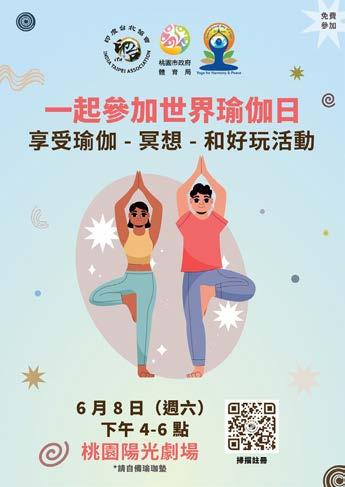


Register









https://centered-on-taiwan.com/ JUNE 2024 23 #14 Tienmu E. Road | Telephone 2871-1515 | GP168@hotmail.com.tw www.longwoodclinic.com Manicure Pedicure Nail Art Acrylic Nail Wax Gel Nail Open 11am-9pm Tel: (02) 2876 2299 No.1-2 Tianmu E. Rd., Taipei https://www.facebook.com/PrettyNails99
CLASSIFIED Advertize with Centered on Taiwan For further information, contact: Naomi Kaly naomi@communitycenter.org.tw Cellphone: +886 979 802 184 1 - 1MM 10:00 AM - 4:00 PM 10:00 AM - 4:00 PM A P M P A P A A A
Taipei Association invites you to join the International Day of Yoga Saturday, June 8 2024, 4 to 6 PM Taoyuan Sunshine Theater
CSC BUSINESS
India
at the link below, and don't forget to bring your own yoga mat! https://reurl.cc/0vvg86

In 1929, socialite Bernadine Szold Fritz left America at the age of 33 to move to Shanghai. She stayed there for the better part of the following decade, until war with Japan forced so many to leave.
It was a time of great change, when Shanghai was a cosmopolitan city yet split apart by a complex network of colonial powers. It was the early days of the Republic of China, before the culmination of the second World War and when civil war would force the KMT to flee to Taiwan.
The stories and places described in the book Bernardine's Shanghai Salon: The Story of the Doyenne of Old China are told through the eyes of a remarkable person, who achieved much in a time when women in either China or America had few rights compared to today.
Susan Blumberg-Kason, the author of her own memoir Good Chinese Wife about life and marriage in 1990s Hong Kong, did extensive research when writing this biography. It is a deep character study, listing a plethora of facts and figures, but also speculating on the deeper motivations and feelings Bernadine must have felt when going through the various personal challenges of her life abroad.
Bernadine was a journalist, writing most prestigiously for the New Yorker among other outlets, but unfortunately during this era she was forced into marriage as a way to support herself and her daughter. Indeed, she originally
Bernadine’s Shanghai Saloon:
The
story of the Doyenne of Old China
By Susan Blumberg-Kason
TEXT: RAY HECHT
moved to Shanghai because of a proposal and often throughout the book she is held back by her marriage to businessman Chester Fritz. (It was her fourth marriage, in fact. Bernadine lived quite the life.)
The book is very unromantic. Her husband, and ex-husbands, were products of the misogyny of the time, and tried to control and limit her in many ways. Despite that, Bernadine went as far as to help found the International Arts Theatre which produced many successful plays, ballets, and operas. The Soul of the Ch'in was the largest ballet ever performed in Shanghai until then, and the adaptation Lady Precious Stream was ahead of its time by being the first English-language production to have an all Chinese cast, a positive revolutionary moment considering previous versions of the play always utilized white actors in yellowface.
Throughout her years, Bernadine met many other famous writers and artists and the book name-drops an exceptional list of 1930s celebrities. She was good friends with author Lin Yutang, wrote letters to Hollywood actress Anna May Wong, and even knew the politically-connected Soong sisters who had such an impact on the history of China and Taiwan, such as Soong Mei-ling—the future wife of dictator Chiang Kai-shek.
Another interesting aspect of the book is Bernadine’s evolving Jewish identity. Perhaps that was why she felt like an outsider in her own homeland, and was able to move so far away. She says in one discussion, “I don’t know what to think anymore. I’ve gone through all the phases of hating it, of
hating all Jews, of being proud of it and hating lots of Jews, of not minding one way or the other and having a few friends who are Jews, or deciding always to take the bull by the horns and in the most obvious way possible tell people right off.” Although she was never religious, as the years went by and horrors of Nazi Germany became more apparent, she participated in Jewish causes in order to aid refugees during the war.
Politics are ever present in the background of the book, but the most fascinating sections are focused on her own private life. Sexuality within her failed marriage is explored, there’s a breast cancer scare, among other issues with her career and family. The saddest aspect of all was her relationship with her daughter Rosemary who she chose to send to boarding school thousands of miles away in America, something hard to understand today, and that story ultimately ends in tragedy.
Fans of history and of women’s issues will appreciate this ambitious book which gives a human angle to such a tumultuous time in the world. I certainly learned a lot, and enjoyed the read.

Ray Hecht is an American writer who has lived in Taipei since 2017. Raised in the American midwest, Ray studied film and promptly left the United States to explore Asia and write about his experiences. He also dabbles in the visual arts, and draws the occasional comic detailing the intricacies of life in Taiwan...
24 JUNE 2024 https://centered-on-taiwan.com/ BOOK REVIEW

Res Artis Conference 2024
FOR MORE INFORMATION: https://resartis.org/call-out-forspeakers-taipei/
Taking place in Taipei (Taiwan) from 06 – 09 September 2024. The conference titled ‘Interweave the Spectrum: Beyond Collaboration’ will be organized by the Taipei | Treasure Hill Artist Village under the Taipei Culture Foundation and co-organized by the Taiwan Art Space Alliance. The conference is supported by the Department of Cultural Affairs, Taipei City Government.
Over 200 Res Artis Members, artists, curators, and art administrators from across the globe will gather in Taipei, a multicultural city in Asia that embraces creativity and openness, to focus on trends and challenges of collaborative practice within the international arts residencies field. Using the spectrum as a symbol, where the continuous flow brings the opposite extremes together, the conversation around collaboration will delve into deeper concepts of cross-disciplinary models, social engagement, capacity building and evaluation.

https://www.facebook.com/cloudforestcollective/
25 https://centered-on-taiwan.com/ JUNE 2024 ART
Lutetia ART-at-TAC June Exhibition
Tobie Openshaw Solo Exhibition 6 Sunflower Movement
Starting 7 June 2024, Lutetia ART-at-TAC will be showing a photography exhibition by Tobie Openshaw. The exhibition showcases Openshaw’s photojournalistic works during the “Sunflower Movement” in Taiwan in 2014, commemorating the 10-year anniversary of this historical event that profoundly changed the political landscape in Taiwan.
TEXT: JESSICA WANG SIMULA IMAGES: TOBIE OPENSHAW

Hailing from South Africa, videographer/documentary photographer Openshaw has been living in Taiwan since 1998. His broad spectrum of photojournalistic work in Taiwan includes working for several international news outlets. During the Sunflower Movement between 18 March to 10 April 2014,
Openshaw photographed the peaceful occupation, by students and civic groups, of the Legislative Yuan and Executive Yuan, in protest of the passing of the Cross Strait Service Trade Agreement without a clause-by-clause review by the then government. Much has been written and reported on the protest, but what Openshaw hopes
to show with this exhibition is not so much the events, but the moments during this movement.
Openshaw’s photographs position him on the ground. They offer an intimate view of the situation not so much from a journalistic point of view, but one of the onlooker with a sharp and cool gaze. He captures seemingly
Tobie Openshaw’s solo exhibition opens on Friday 7 June, with the opening reception from 5:30pm to 8:30pm. Openshaw will be present to give a guided tour and talk about his experience being there on the ground during the Sunflower Movement. All are welcome. All art sales at ART-at-TAC are commission-free, with 10% of the proceeds going to charities of the artist’s choice. Follow our Instagram https://www.instagram.com/lutetiaartattac/ for the latest news and links to artists.
26 JUNE 2024 https://centered-on-taiwan.com/ ART
insignificant moments that exude the humanity of all the people who were involved in the events. Police and protestors stand in the same room, no confrontations, all doing what they are there to do, in peace, with respect. Openshaws remembers how at the end of a police work shift, the protesters would say to them: “hard work today, see you tomorrow”. There were medical students offering help, lawyers offering free advice, additional employees of the nearby Seven-Eleven busy stocking the store to keep supplies up for the protesters. These small gestures of kindness and thoughtfulness were what stood out for Openshaw, much more than the politics and issues. As news reports tell us constantly how events like this could easily turn to violence and repression, this event embodied a version of democracy at its best, its effects still felt 10 years on.


Jessica Wang Simula was born in Taiwan but has lived in six different countries since adolescence before relocating back to Taiwan with her family over three years ago. Having worked in the arts in Shanghai and London, she is interested in how the arts can start new conversations, build communities and connect people.




27 https://centered-on-taiwan.com/ JUNE 2024
ART
Modern Insights of Laozi and Zhuangzi
The Nuances of Xiǎo zhī (小知)
Perspective is Self-Awareness, Attitude is Freedom

TEXT & IMAGES: HERBERT CHOW (周文斌)
QÍWÙ (斉物) – A BEACON OF ULTIMATE LIBERATION & AUTHENTIC EXISTENCE
Embracing our true selves unlocks the hidden beauty in everyday life, revealing the very essence of existence aligns with Dao. In such a state, Laozi asserts that we are no longer susceptible to temptation of selfishness (wú hé huàn - 吾有何患), as expressed in Passage 13 of the Tao Te Ching.
Zhuangzi's second chapter, Qíwù lùn (齊物論), explores the transcendence of self-centeredness. He argues that fixating on self-righteousness, and self-importance (zì yǐ wéi shì - 自以 为是) limit personal growth, damage relationship, and impede our wellbeing. The four pillars of Qíwù (齊物) aims to overcome the ego self (Wǒ - 我) and works to reconnect us to the true self (Wú - 吾).
Zhuangzi concludes the chapter with a captivating dream of him becoming a butterfly (Zhuāng Zhōu
mèng dié - 莊周夢蝶). While the tale of the two shadows delineates the interconnectedness (yǒu dài - 有待) of the two selves, the adoption of new attitudes help blur the lines between them. The transcendence of selfcenteredness occurs through letting go of narrow perspectives and adopting interconnectedness emphasized in the concept of Qíwù (斉物). This liberation (Wù dài - 无待 ), like Zhuangzi’s transformation into a butterfly, represents the ultimate freedom of the true self, unburdened by the constraints of egotism.
THE
TRANSCENDENCE OF SELF-
CENTEREDNESS
The chapter begins with a vivid picture of "wú sàng wǒ” ( 吾丧我 ), describing a character grappling with a loss of self. It then explores the sluggish demeanors of a Xiǎo zhī” (小知). Finally, Zhuangzi concludes with the captivating dream of him transforming into a
butterfly, symbolizing the liberation of the true self (consciousness). (Zhuāng Zhōu mèng dié - 莊周夢蝶).
THE DIFFERENCES BETWEEN “WÚ吾” AND “WǑ - 我”
The Opening Scene – The teacher rested against the desk; eyes fixated towards the heavens. A student queries, "What's happening? Your body appears lifeless, but is your mind also in a void?" The teacher responded, "An insightful question! Today, I've achieved a state of self-forgetfulness (“wú sàng wǒ - 吾丧我”).”
In Chinese language two and a half millennia ago, “Wú - 吾 ” and “Wǒ我” denote distinct states of ‘self’ with significant semantic disparities. "Wǒ" refers to the tangible self that is continuously influenced by the experiences we have, the things we own, the environment we live in, and the people we interact with. “Wú”, on the other hand, is employed for
28 JUNE 2024 https://centered-on-taiwan.com/ ART & CULTURE
self-expression independent of "others". It represents the authentic self, embodying many positive qualities. While the embodied identity (“Wǒ") sways to the rhythms of the world, the conscientious self (“Wú”) is rather steadfast and synchronizes with the beats of the Nature (Dao - 道).
THE DYNAMICS BETWEEN THE AUTHENTIC SELF “WÚ - 吾” AND THE SELF-CENTERED “WǑ - 我”
The tale of Wǎng Liǎng Wèn Jǐng ( 罔两 问景 ) paints a picture of inseparable bond between Wǒ - 我 ” and Wú - 吾 . Wǎng liǎng (罔两) is the elusive faint shadow beyond the periphery of the silhouette (Jǐn - 景 ). Wǎng liǎng questions Jǐn, asking, "Do you only move when your master moves? Do you lack your own consciousness?" Jǐn responds, "I am bound to follow my master's movements. No different than a snake relies on its scales and a cicada needs its wings”.
Wú and Wǒ are inseparable, much like the two intertwined shadows. The ego self (Wǒ) is the vulnerable one in the duo. Constant skepticisms, arguments, comparisons, fear, materialism, pride, fame, and external validation disrupt its well-being, leading it astray from Wú, which displays kindness, righteousness, respect, and trustworthiness. The conflict creates ongoing disturbances in their relationship and the world around them.
EMBRACING QÍWÙ’S (斉物): THE MINDSETS BEHIND THE SCENES
Zhuangzi's notion of sàng wǒ (丧我), which translates to "loss of self," closely mirrors Laozi's concept of the "true self without the body" (wú wú shēn - 吾无身) (Passage 13 of Tao Te Ching). In this framework, wú shēn (无身) and sàng wǒ (丧我) encourage us to avoid being swayed by external circumstances and make sound decisions based on values and principles.
Zhuangzi’s mindset of non-reliance (Wù dài - 无待) and Laozi’s teaching of letting go (Fú shì - 弗恃 & Bù shì - 不恃 , as expressed in Passages 2 and 10 of Tao Te Ching) help shed narrow perspectives and embrace the interconnectedness of Qíwù ( 斉物 ). These principles cultivate inner peace and help navigate life’s challenges with grace and integrity.
Rewiring the Selfish Wǒ “我: From Isolation to Reconnection.
Zhuangzi associates the corrupted Wǒ (我) with Xiǎo zhī (小知), who exudes inflated egos and disgruntled noises (Rén làng - 人籁) reminiscent of the mournful echoes of human artifice. They employ sneaky tactics and engage in endless arguments. Finding faults in others and passing judgment are their specialties. Their narrowmindedness resists alternative perspectives. Emotionally, they are impulsive, quick to anger, reckless, yet harbor profound insecurity. Zhuangzi imparts a serious prognosis to Xiǎo zhī (小知), exhibiting an inflated sense of self-importance.
Qíwù lùn ( 齊物論 ) focuses on correcting Wǒ's distorted perceptions of the world, others, and itself. By addressing issues like self-righteousness and self-importance that cloud Wǒ's judgment, Qíwù lùn paves the way for the true self consciousness (Wú) to reconnect with the outside world.
QÍWÙ (斉物):
TRANSCENDS THE LIMITATIONS OF SUBJECTIVE THINKING.
Zhuangzi's idea of Qíwù (齊物) emphasizes the interconnectedness of all things in the universe. Interconnectedness transcends the limitations of subjective concepts such as “good and bad”, “me and others”, and “right and wrong”, which often have no universal standards or references for judgment. Qíwù develops a deeper sense of empathy for others in four areas.
1)Transcend good and bad (qí shì fēi - 斉是非) to appreciate others with different values without imposing our own. It fosters openminded, objective dialogue, and embracing a willing and curious mindset to engage with diverse perspectives.
2)Transcend egocentrism (qí bǐ cǐ - (斉彼此) to emphasizes unity, collaboration, and mutual support in the pursuit of common goals.
3) Deemphasize materialism (qí wù wǒ - 斉物我) to foster interconnectedness to all things in nature while acknowledging that each entity possesses its own distinct perspective. This concept helps to break down barriers of prejudice and promote mutual understanding.
4)Surpassing the fear of live and death cycle (qí sǐ sheng - 斉生死) redirects our attention from mere existence to fully living and experiencing life with greater intensity and appreciation. By challenging assumptions, embracing diverse perspectives, and approaching complex issues with an open mind, these strategies promote a more equitable and fair understanding of the world. These fundamental shift in attitude dismantles the self-importance and selfrighteousness (zì yǐ wéi shì - 自以为是) characteristics of a Xiǎo zhī (小知), paving its way to become a wiser person (Dà zhī - 大知).
Residing in San Diego with roots in Hong Kong and Taiwan, Herbert bridges the gap between science and art. By day, he works as a biotech professional, but his true passion lies in expressing himself in acrylic paintings and introspective writings. Herbert's paintings of landscapes, seascapes, and soaring birds capture the essence of nature's tranquility and power. Inspired by the wisdom of Zhuangzi and Laozi, he delves into themes often overlooked in our fast-paced world: self-reflection, interconnections, and the true essence of life. Through his art and writing, Herbert invites viewers on a journey of mindfulness, offering a deeper understanding of life's complexities and a path toward a more fulfilling existence. https://twitter.com/RubiconMFA

29 https://centered-on-taiwan.com/ JUNE 2024 ART & CULTURE
Travel Tips For A Pain Free Summer
TEXT: JESSICA LOTT, DOCTOR OF PHYSICAL THERAPY IMAGES: WEB
As summer approaches, many people look forward to a much needed vacation, which usually involves traveling on and off the island. While traveling can be exciting and fun, it can also be compromising to our health.
Regardless of whether you are traveling by car, train, or airplane, traveling involves long periods of time standing and walking, sitting in tight and cramped spaces, and carrying and lifting heavy luggage. Additionally, traveling can have negative impacts on our bodies physiological functions. Lack of movement for sustained periods of time causes a decrease in blood flow to muscles and joints, digestion slows, muscles can become achy and spasm, and nerves can become compressed for too long causing damage. Prolonged sitting and standing causes fluid to accumulate in the lower legs and feet, resulting in edema. Decreased air pressure on airplanes causes a decrease in blood oxygen concentration. Lastly, low air humidity while flying results in dehydration and causes blood to thicken, which can lead to a serious condition called a deep vein thrombosis (DVT).
Luckily, there are simple ways you can prevent or minimize the negative effects of traveling so you can enjoy your trip.

1. Move Frequently
Limit sitting and standing to 1-2 hours at a time. Every hour is ideal, but this can sometimes be difficult to achieve. In between long bouts of sitting and standing, you should take a 5 minute break to move around. Get out of the car or your seat and walk around. You can also use this time to do gentle stretches and exercises.
2. Boost Blood Circulation
Simple exercises can be done both in sitting and standing to increase the blood circulation and help with avoiding a DVT. If you experience pain, tenderness, swelling, heat and/or redness in your legs, this may be a sign of a DVT or blood clot. Shortness of breath may be a sign that a clot has formed in your lungs or has moved there. If you suspect there is a problem, inform a crew member as soon as possible.
3. Stay Hydrated
Water comprises about 60% of our body, which means we require a lot of fluid during the day to maintain and prevent too much fluid loss. In addition to the decrease in air humidity on an airplane, we tend to drink less when we travel due to TSA liquid restrictions and less accessibility to restrooms. A general rule to follow for daily hydration is to drink half your bodyweight in ounces. For example, if you weigh 150 lbs, then you should drink at least 75 ounces of fluids per day. Signs of dehydration include feeling tired, urine is not clear or light yellow, and your eyes, skin, and or throat feel dry or itchy. Some tips to stay hydrated include:

1. Foot pumps
Lift your feels up from floor while keeping the balls of your feet on the floor. Hold the pose for a few seconds at the top. Set your heels to the floor and ext lift up your toes. Hold for a few secondds. Repeat for 1 minute total.
3. Lef lifts
Lift your foot off the floor, and straighten your leg as much as you can, while keeping your ankles bent and your toes pointed upward. Relax your leg. Repeat with the other lef. Perform each leg for 1 munute total.
2. Ankle circles
Lift your feet off the floor. Trace circles whith your toes clockwise. Perform 30 seconds. Switch direction and draw circles conterclockwise for 30 seconds. Perform for 1 minute total.
4. Knee pull-ins
Bend your lef and hug your knee as close to your chest as you can keep your back straight and hold the pose for a few seconds. Alternate each side a few times. Perform for 1 minute total.
30 JUNE 2024 https://centered-on-taiwan.com/
WELLNESS
•Carry an empty reusable water bottle with you.
• Avoid caffeine and alcoholic beverages as these increase dehydration.
• Drink coconut water instead of sugary sports drinks to replenish fluid and electrolytes.
4. Use Luggage Wisely
Pack heavier items in checked baggage and lighter items in carry-on bags. Make sure carry-on bags are comfortable to wear for long periods of time while standing in line and walking. Ideally, bags should have two straps and sit evenly across your shoulders. Use bags with roller wheels and luggage carts as much as possible to limit carrying. Use proper lifting techniques when picking up and lifting bags into overhead compartments such as:
• Keep luggage as close as possible to your body when lifting.
• Use your legs (not your back) by hinging your hips back prior to lifting.
• Keep your body facing the direction you are lifting, avoid twisting motions.
5. Maintain Regular Exercise Routines
Maintaining your activity level can help avoid aches and pains. Set yourself up for success to maintain your regular exercise routine when traveling by planning ahead. Research local exercise facilities and classes or incorporate physical activity into your trip when planning. Pack exercise clothes and shoes as well as portable workout equipment such as exercise bands and balls so you have what you need. Create a buddy system with someone, either in person or virtual, that can help keep you motivated and hold you accountable. Utilizing these tips should help ensure your summer travel experience is a positive one!

https://communitycenter.org.tw/what-we-do/activities/

Jessica Lott is a Doctor of Physical Therapy, living in Taipei since 2021. She is from the United States and has been living and working in Asia since 2014. Prior to living in Taiwan, she lived in Shanghai, China where she worked as a Physical Therapist at Shanghai United Family Hospital and UP Clinic. Jessica has experience treating various conditions and injuries and works with individuals of all ages. She is passionate about physical health, wellness, and helping people achieve their goals. You can contact Jessica at physicalrestorations@gmail.com



31 https://centered-on-taiwan.com/ JUNE 2024
WELLNESS
The print version of the Spring and Summer catalog is available at The Center. For early registration Spring & Summer Catalog

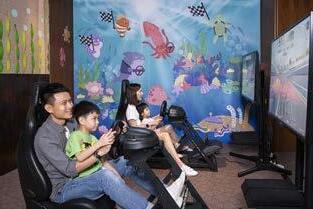






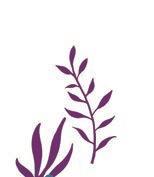



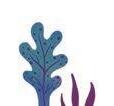





32 JUNE 2024 https://centered-on-taiwan.com/






















































































































































